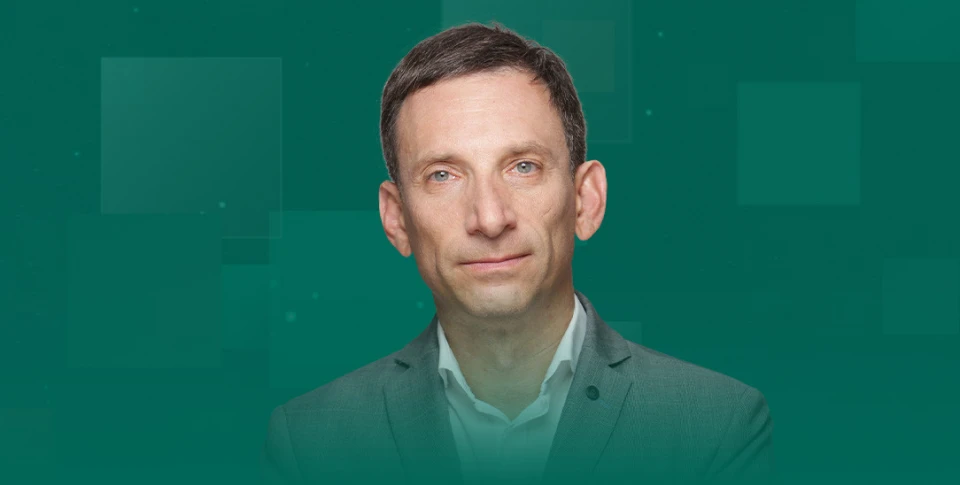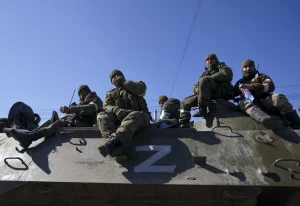
Trump: Putin is destroying Russia. Column by Vitaly Portnikov
On his first day in the White House, U.S. President Donald Trump again stressed the need for a meeting with Russian leader Vladimir Putin to end the Russian-Ukrainian war
Trump's responses to journalists' questions make it clear that he has no concrete idea of how this resolution should happen. He merely hopes that Putin will understand the necessity of reaching an agreement, because, as Trump says, this war is destroying Russia, and Putin cannot be happy about it. He's not doing so well, Trump told reporters. And he doesn’t look great because of it.
And of course, Trump also pointed out the massive loss of life in the Russian-Ukrainian war. He emphasized that he has a good rapport with Putin and believes he can strike a deal.
"The optimistic takeaway from Trump’s remarks is that he is convinced Ukrainian President Volodymyr Zelenskyy wants to reach a settlement to end the war. Trump also made it clear that he has no intention of lifting the sanctions on Russia that were imposed by his predecessors."
This means Trump plans to negotiate with Putin while keeping all the tools designed to pressure the Russian leader firmly in his own hands. But the question is: how ready is Putin to engage on these terms?
Just before Trump’s inauguration, Putin addressed the Russian Security Council, delivering a set of demands widely interpreted in the U.S. as an ultimatum to the new American president. Essentially, Putin appears open to ending the war, but only on the same terms he proposed back in 2022, when he decided to attack Ukraine. Those terms leave no doubt about Putin’s ultimate goal: full control over Ukraine. Not only to block Ukraine’s entry into NATO but to prevent it from becoming a state capable of resisting Russian aggression in the future.
It’s clear that Donald Trump isn’t the type to bow to ultimatums.
"Now we’re in a tricky spot: Trump believes Putin needs an exit strategy from the Russian-Ukrainian war that lets him save face and fix Russia’s economy. On the other hand, Putin is mostly focused on securing a meeting with Trump to showcase that the West’s attempt to isolate Russia after February 2022 has completely failed."
These conflicting goals between the U.S. and Russian presidents ahead of their likely meeting, which seems inevitable since Trump has already ordered preparations, and Putin isn’t opposed, practically guarantee that this first U.S.-Russia summit after Russia’s major attack on Ukraine will either fail outright or produce no tangible results.
Of course, it all depends on how willing Trump and Putin are to keep the dialogue going. Putin will need to come up with ways to give Trump the impression that negotiations are possible, offering minor compromises during this first meeting to leave room for a second one.
The real question is how Trump will react when he realizes no one is seriously negotiating with him, and he’s simply being used as a tool to boost Putin’s image. This is especially true in the Global South, where many nations already lean towards cooperating with Putin, and that interest may grow after Trump’s victory in the U.S. elections and his inauguration as president.
Why are they so interested?
"Because Trump’s habit of pushing his will onto other nations from a position of strength makes the Russian Federation a convenient nuclear umbrella for those unwilling to play along with the new U.S. president’s ambitions, and, in fact, who might actively resist them."
In this scenario, Russia’s foreign policy role for countries unwilling to align with Trump, especially authoritarian and dictatorial regimes, is expanding rapidly, and Putin knows it well. With every statement Trump makes, Putin positions himself as a geopolitical leader and a magnet for these dictators — and not just them.
Here, the focus isn’t even on how eager Trump is to meet his Russian counterpart, but on how long he’ll stick to enforcing and intensifying sanctions against Russia and how those sanctions will shape the Russian economy in the years ahead.
Of course, much also depends on more than Trump’s claims that Ukraine’s President Zelenskyy is seeking peace agreements. It hinges on the willingness of the new American president to sustain or even increase U.S. support for Ukraine. After all, Trump’s words don’t necessarily mean he’s ready to pour money into a situation he might dismiss as a losing cause for his image. Then again, who knows? When asked about his promise to end the war in 24 hours, Trump, ever mocking those who take his words seriously, replied that he still had half a day left.
About the author. Vitaly Portnikov, journalist, Ukraine's National Shevchenko Prize laureate.
The editorial staff does not always share the opinions expressed by the blog authors.
- News













































